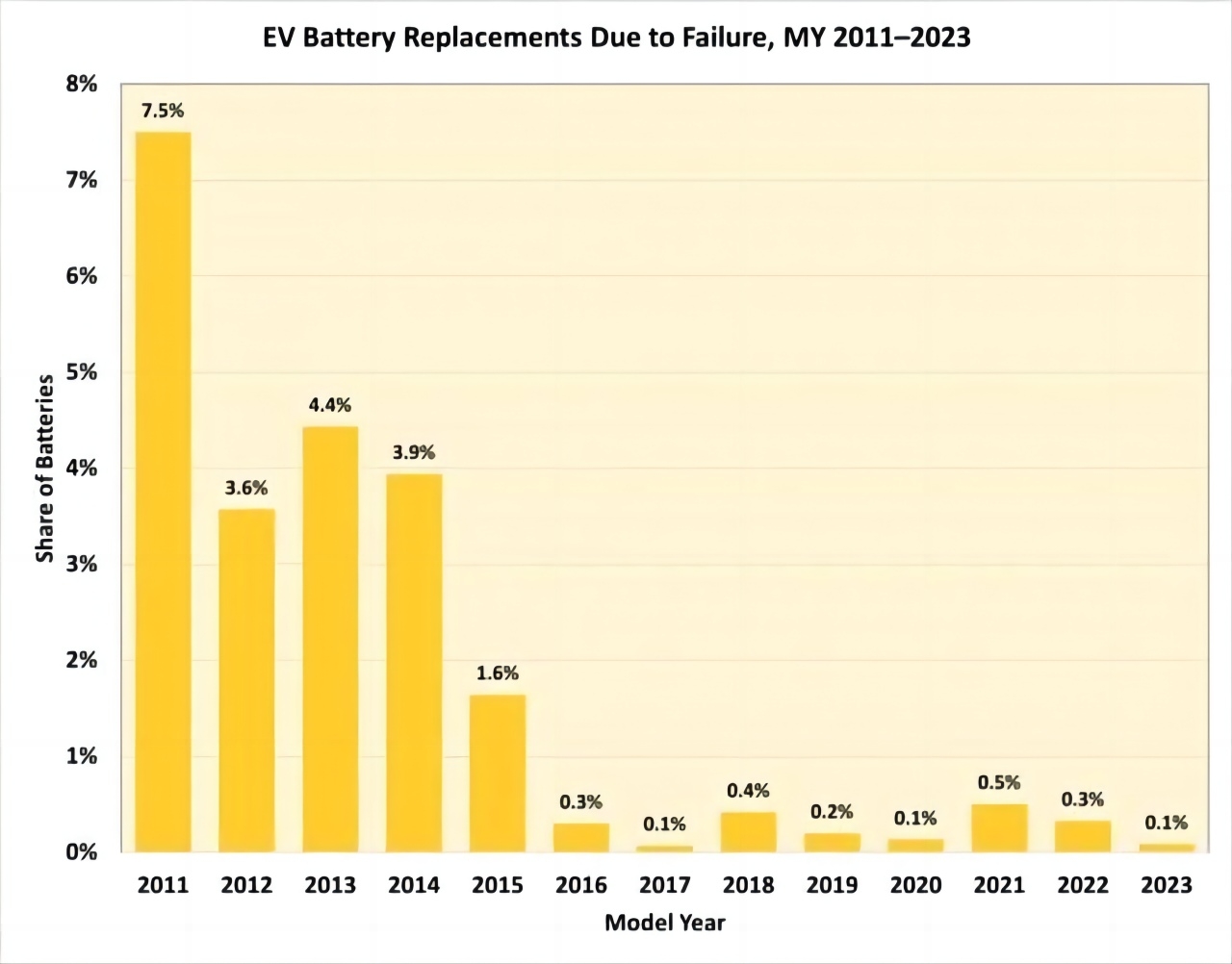Lithium-ion battery failure rates for plug-in electric vehicles have dropped significantly in recent years. The U.S. Department of Energy’s Vehicle Technology Office recently highlighted a research report titled “New Study: How Long Does an Electric Vehicle Battery Last?” Published by Recurrent, the report shows data showing that EV battery reliability has come a long way over the past decade, especially in recent years.
The study looked at battery data from about 15,000 rechargeable cars between 2011 and 2023. The results show that battery replacement rates (due to failures rather than recalls) were much higher in the early years (2011-2015) than in recent years (2016-2023).
In the early stages when electric vehicle options were limited, some models experienced notable battery failure rates, with figures reaching several percentage points. Analysis indicates that 2011 marked the peak year for battery failures, with a rate of up to 7.5% excluding recalls. Subsequent years saw failure rates ranging from 1.6% to 4.4%, indicating ongoing challenges for electric car users in encountering battery issues.
However, IT House observed a significant shift starting from 2016, where the battery failure replacement rate (excluding recalls) demonstrated a clear inflection point. Although the highest failure rate still hovered around 0.5%, the majority of years saw rates ranging between 0.1% and 0.3%, signifying a notable tenfold improvement.
The report states that most malfunctions are resolved within the manufacturer’s warranty period. Improvements in battery reliability are due to more mature technologies such as active liquid battery cooling systems, new battery thermal management strategies and newer battery chemistries. In addition to this, stricter quality control also plays an important role.
Looking at specific models, the early Tesla Model S and Nissan Leaf seemed to have the highest battery failure rates. These two cars were very popular in the plug-in segment at the time, which also drove up the overall Average failure rate:
2013 Tesla Model S (8.5%)
2014 Tesla Model S (7.3%)
2015 Tesla Model S (3.5%)
2011 Nissan Leaf (8.3%)
2012 Nissan Leaf (3.5%)
The study data is based on feedback from approximately 15,000 vehicle owners. It is worth mentioning that the main reason for the large-scale recalls of Chevrolet Bolt EV / Bolt EUV and Hyundai Kona Electric in recent years is defective LG Energy Solution batteries (manufacturing issues).
Post time: Apr-25-2024









